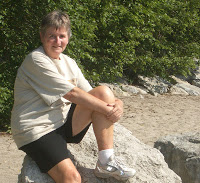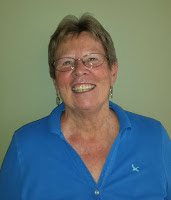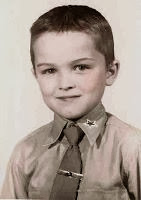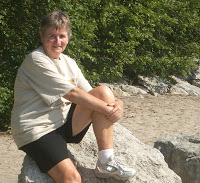I know those of you who’ve been in this group for some time are just tired of hearing me whinge about poor battered Britain in the years immediately after WW11. Well, too bad! It happens to be the environment I grew up in and so the time and place which generated many of my childhood memories and so my stories.
And here we go again!
In the U.K., children began (and still do begin) elementary school at the age of five, not six as we do here. So in 1947 I began the daily walk to and from the same little two-room school where my mother taught. That winter has gone down in history as one of the worst U.K.winters ever, with snow on the ground for over two months and bitter cold. I developed a bad cough and what appears in my memory as a constant cold, but then most kids were sick, as I’m sure were many adults. Most of our houses were cold and damp, without central heating – for which there would have been no fuel anyway – and few people had adequate clothing and food which were still severely rationed, as were most things until well into the 1950’s. Frequently, even if you had saved enough coupons, whatever you wanted was simply unavailable anyway.
My mother decided that to survive the bitter cold, we needed scarves. But we had no clothing coupons as my growing feet had gobbled them all up in a new pair of boots. So she would knit them. Now, I doubt that wool was actually rationed, but it was not to be had. If you had old knitted garments that were simply beyond further darning, you unravelled them and saved the worn and kinky wool for future use. My mother had a cardboard box, which probably should have been sacrificed, as just about everything had been, to the War Effort, always spoken of in capitals. Somehow this tatty old thing had survived and Mum used it for storing various balls of recycled wool. We took them out reverently, handling them like cut glass. The cats had been banished from the room lest they decide that wool is a perfect plaything. I recognized some scarlet wool which I knew came from an old sweater I had had when I was little, (I now considered myself quite grown. I had started school for goodness’ sake!) and which I had worn until it threatened to inhibit my breathing. Some very ratty gray wool I recalled came from out-at-heel socks of my dad’s. Where the rest of the bits and bobs came from I had no idea. It didn’t matter anyway, they were moving on!
Perhaps a more skilled needlewoman than my mother would have been able to knit patterns, or at least stripes, with all the different colors. But Mom’s skill level was, shall we say, elementary. Before the War, when there was material available, she used to teach basic knitting to the six-year-olds. It was always facecloths, knitted on big fat needles so they came out looking more like fishing nets for the Little People. I suspect it was invariably these easy square pieces more because of my mother’s limitations than that of the kids. But my dad and I both had faith she could do scarves. What is a scarf, after all, but an elongated facecloth? She just started out with one color, tied the last piece of it to the beginning of the next, and created quite an interesting hodgepodge of colors. But Mom’s knitting was always a bit erratic. She would start out tense, her stitches too tight. But soon she would be distracted by some entertainment on the radio and the stitches got looser and looser. Before long the scarf was taking on a somewhat rolling countenance, swelling and shrinking like ocean waves. Also, to be fair, the fact that the wool was of different thicknesses did nothing to add to the consistency of the stitches. So each scarf ended up with very wavy edges, and considerable variations in width and thickness. If I could only recreate them now, I’d think they would have a pretty good chance of becoming THE fashion accessory.
My father did have a scarf but was badly in need of a new one. His apparently dated from some time Before the War and he had worn it During the War but now, After the War, it was in rags and must not have offered much protection from the bitterly cold winds of that 1947 winter.
We didn’t talk of decades in those days. All of life was divided into three time periods, always spoken of in Capitals as was The War Effort. There was Before the War, During the War, and After the War, sometimes simply referred to as Now. Before the War was a wonderful place of endless sunny days, with peace and laughter; a land of relative abundance. During the War was the land of stoicism and heroics and carrying on and making do and tightening belts and stiff upper lips, and a lot of pride. But Now, After the War, was disillusion and resentment following rapidly on the heels of the euphoria of the long-awaited peace. What had it all been for? So many dead, even more homeless and everyone was broke. Rationing and shortages were even worse Now than they were During the War.
Mum also already had a scarf from Before the War, but it was flimsy and, though pretty, not made to provide warmth. Not only was it from Before the War, but it came from some mysterious place called The Twenties. Most of the things my mother had, seemed to have come from The Twenties. She never referred to it as The Nineteen-Twenties, so I had no idea that she was talking about a time. I envisioned The Twenties as being some huge department store loaded with wonderful things – even more exciting than Woolworth’s.
Now, three strangely serpentine scarves lay proudly stretched out on the table. My mother watched proudly, waiting for Dad and me to pick the one we wanted. Dad shook his head.
“By heck! This’ll be a decision.”
He gazed solemnly at me and offered a grave wink. I wanted to giggle but somehow knew I must not. Instead I entered whole-heartedly into the game. I gave a little girly squeal, which I have to say did not come naturally to me, and wriggled in excitement.
“That one! Can I have that one?”
Mum wound it around my neck, Dad and Mom each wore one and we looked appreciatively at ourselves.
“By heck!” said my dad again, “that’s just grand!”
I have often thought, looking back, how absurd the three of us must have looked when we were out together in those ridiculous scarves; like escapees from some Dr. Seuss book. But in those days, everyone wore strange combinations of mend-and-make-do clothes, and nobody thought much about it. The aim was warmth, after all, and that we got.
Success went completely to my mother’s head. A few days later found her once again studying what was left of differently colored little balls and scraps of wool, and various needles, then at my eternally red, raw, and chapped hands.
“Gloves,” she was saying rather doubtfully to herself. “We all need gloves.”
A fleeting look of panic crossed my father’s face, to be replaced instantly by a bland smile.
“Ay, that’d be grand.” He winked at me. “But mittens,” he added, “they’d be warmer.”
“Ooh yes, mittens! Mittens!” I echoed, though I’m not sure I knew what mittens were. But I knew what gloves were, with all those fingers sticking out of them and, young as I was, I knew, as my dad did, that Mum’s knitting was not up to gloves.
“Yes,” she agreed with great relief. “Mittens. Mittens are much warmer.”
My dad was away for the next two weeks. He was an engineer, and deemed too valuable by the powers that be to be allowed to volunteer as canon fodder. Instead he worked at a huge factory a long way, at least for those days, away from home. To get to work he had to take two buses, then a train, then another bus, then walk two miles. He also worked very long very erratic hours, and so stayed in a rooming house near the factory for several days and sometimes weeks. Whatever they made at this distant factory was classified as Top Secret, another phrase which was always capitalized, so Dad never, in his whole life, talked about it. The question, what did you do in The War, Daddy? went unanswered for many a child as so many adults lived in terror of contravening the Official Secrets Act (in capitals) by saying too much, and disappearing into some distant dark dungeon. My dad did say, in some unguarded moment, that if the most exciting thing you did throughout the war was wash milk bottles, they’d find some way of sweeping it in under the Official Secrets Act.
When my father returned home this time, he was greeted by three pairs of mittens, all more or less identical except for size. The colors of all were the same random multi-colored blotches as the scarves and, on closer inspection, the shapes were not so different from the scarves. After all, with a little imagination, mittens are little more than short scarves folded over across the middle, the sides sewn up, and elastic threaded around near the open end to fit them to your wrist. But wait! What about the thumb? I had watched in fascination as poor Mum tried to knit the thumb part but could not seem to get the hang of it. After many failed attempts, she fell back on her old favorite, the elongated square. She knit what was in fact a very tiny scarf, folded it over as in making mittens, and sewed up both sides. Then, having left an opening when closing up the side of the mitten, she stitched the end open of the tiny mitten to the opening in the side of the big mitten and, voila! a mitten complete with thumb. Though in fact they looked, lying flat on the table, like nothing more than the old knitted facecloth with a miniature facecloth attached.
“Ay, that’s just grand!” Dad slid his hands into his and held his hands up, waggling his fingers open and closed. I learned later that they were way too big and would have fallen off if he had not held up his hands, and the little thumbs, as I also discovered about mine, were way too short and not quite in the right place. Who cared? They were warm! I simply tucked by thumb into my palm where it stayed nice and cozy, and ignored the little thumb addition. I must say, though, it gave me a better understanding of why hominids didn’t get far with the use of tools until they developed opposable thumbs!
Again, in hindsight, I marvel at the vision of this engineer, too valuable to be allowed to fight, turning up at this huge, Top Secret, factory, in those wildly colored, sadly misshapen mittens.
Especially in combo with the equally wildly colored and misshapen scarf, it conjures up quite a picture. And in a time and place where men rarely wore anything other than dark, conservative, clothes! But, to be honest, it wouldn’t surprise me if Dad didn’t wear them once away from home, though he always wore them when he left and when he returned. What makes me suspect this is that I caught him out in another way. I went to where he was planting potatoes in the garden, to tell him tea was ready. He started for the house and then stopped. Pulling the mittens from his jacket pockets he winked at me.
“Mustn’t go in without my handbags,” and he slid them on. And always after that I noticed him popping them on before returning indoors.
Oh, and I was so delighted with that term. Handbags. Hand bags. It described them perfectly. Bags to put your hands in! For many years after that, when Mom mentioned her handbag – it was never called a purse in Britain – I would giggle and my dad would wink solemnly, which only made me giggle more. My father said much much more to me with his wonderful winks than he ever did in words
I know this is where I’m expected to say how much I loved those mittens and that scarf, and carried them everywhere with me like Linus with his blanket. Sorry! Not so. I was ever grateful for the added warmth, but they … what is the word? To say they frightened me is way too much.
But perhaps they did make me a little uneasy. They had something of living creatures about them as they constantly changed shape. The bigger gaps in the relaxed stitching snagged too easily on things; particularly on little fingers. There was an occasional dropped stitch in there too, increasing the problem. The wool was old, some of it several times recycled and so, brittle and thin. It broke here and there, causing further unraveling, as did the slow mysterious undoing of my mothers knots. I seemed eerily to me as if they were slowly but steadily unknitting themselves, some future day to disappear, returning to little variously colored balls of yarn.
After clothing rationing finally ended, after fourteen years, in 1954, we had the luxury of store-bought gloves and scarves and my mother was relieved of the challenges of knitting. But for sure nothing ever again had such character. Nor did any clothes ever again represent so much love and laughter. My mother taught me that for those you love, you do what you must the best you can. And that is all any of us can do. And my father taught me to see the humor in just about anything, and to be ever solicitous of the feelings of others.
I searched through my old photos after I wrote this, hoping to do a show and tell of those mittens and scarves. No luck. Then of course it dawned on me. Mom did have an old camera which came, of course, from The Twenties, but even if it had still worked there would have been no film available over many years.
And that reminds me of one of my dad’s favorite expressions. It’s not original, it was a common saying used by many at the time. It’s also probably the longest sentence my father ever spoke.
“If we had any eggs, we could have bacon and eggs, if we had any bacon.”
© March 2015
About the Author
I was born and raised in England. After graduation from college there, I moved to the U.S. and, having discovered Colorado, never left. I have lived in the Denver-Boulder area since 1965, working for 30 years at IBM. I married, raised four stepchildren, then got divorced after finally, in my forties, accepting myself as a lesbian. I have now been with my wonderful partner Betsy for 25 years.











